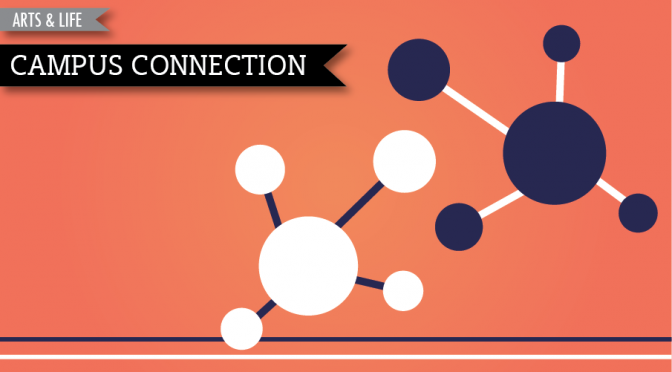
Meaningful media
By: Christine LaFrancesca, Staff Writer
Media and Diversity Engagement (M.A.D.E), is a relatively new club on campus devoted to the transparency of social issues and representation on all media platforms. Having formed just last semester, M.A.D.E has been working to find their footing and make a positive impact on Towson students.
Junior and president of M.A.D.E Danielle Gibson (a former The Towerlight contributor) is an electronic media and film major who is passionate about bringing marginalized voices to the front of film and about bringing social issues to light through the cinema arts. Gibson hopes that their voice on campus will inspire students to join.
“This is our first semester being SGA affiliated,” Gibson said. “I’ve heard from word of mouth that people are aware of it.”
Gibson not only wants to educate students about media diversity, but also to inspire students to spark their own conversations about media platforms.
“It isn’t just for women and minorities, it’s for everyone.” Gibson said. “In [vice president of M.A.D.E] Gabriel’s words, we don’t want to be a group of minorities complaining about everything else. We just want to spread awareness and let people have a voice for themselves. Just to have a safe space to share all this. If it goes un-talked about it’s just going to continue.”
Senior and vice president of M.A.D.E Gabriel Perez is also an EMF major and has been interested in film since his first job interacting within a cinematic environment almost four years ago.
“Movie theaters that show only mainstream film, maybe one or two independents but mostly mainstream, after a while they get depressing,” Perez said. “You feel like you’re watching the same movies over and over again, with the same actors. It became very clear that someone is making this decision. It’s very deliberate and a lot of it is tied to money. Even if it isn’t inherently racist or sexist, which we can’t always tell if it is, still perpetuates these ideas.”
One video in particular that Perez showed at their last meeting was titled, “What is Being Gay (According to the Media)?” which highlighted the various misconceptions and stereotypes placed on the gay community throughout years of films.
“There used to be a rule for film that you couldn’t show an LGBT character in a movie unless they died at the end,” Gibson said. “This was to show that this was morally wrong. That was the mentality: this is why the villain has to die, so people wouldn’t be convinced to do that.”
On April 28, M.A.D.E will be hosting their “Work in Progress” screening. This event was organized to support students with their media work and to offer critiques and advice in order to enhance or further the production of their pieces.
“We want film students who are working on any type of media to submit their works, finished or not, in order to get judgment- free criticism from their peers—constructive criticism,” Perez said. “We know the real world isn’t like that at all, so we want to provide that kind of safety net.”
Having just begun their movement to improve media both on campus and elsewhere, M.A.D.E is taking the initiative to have conversations about diversity. To join their conversation, M.A.D.E meets every Wednesday from 5-6 p.m. in room 201A in the Media Center.

